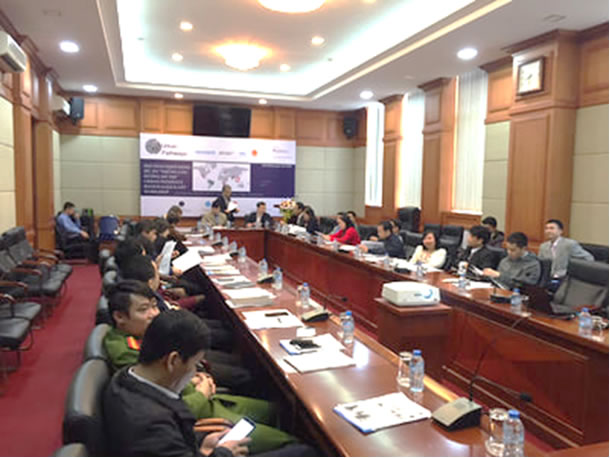The cities of Kochi in India and Hai Phong in Vietnam have started the implementation of the Urban Pathways Project which aims to support Low Carbon Plans for urban basic services. To deliver on this as well on the New Urban Agenda, various stakeholders met in two different meetings in the two countries within the month of January 2018.

In Kochi, the consultative meeting convened by the Kochi Municipal Corporation discussed feasible interventions on urban basic services focusing on the city’s public transport system, urban energy and waste management. Target participants for the workshop were representatives from Municipal Departments relating to Natural Resources and Environment, Transport, Energy, Waste Management, Urban Planning and Investment, relevant institutions, NGOs and international organisations.
The Hai Phong meeting discussed opportunities to implement low-carbon urban energy, mobility and resource management solutions in the city and to identify synergies among the various initiatives and projects.
The deliberations in Hai Phong resulted in Urban Pathways concrete action points that include raising awareness of government officials and the local community on sustainable transport, energy consumption and waste management; support Hai Phong to develop action plans to deliver on the Nationally Determined Contributions (NDCs) to mitigate climate change; provide urban change maker to city leaders, government decision makers and the local people with training, workshops, e-learning courses; city-to-city partnership thus connecting with the other pilot countries to learn from experiences; and pilot projects, awareness campaigns on sustainable transport – improvement of public transport – electrification of vehicles.
Kochi and Hai Phong are part of the four major emerging cities selected for implementation of the Urban Pathways Project. Other cities are Nairobi in Kenya and Belo Horizonte in Brazil. The Urban Pathways is currently evaluating possible replication cities to undergo a set of “Proof of Concept” projects and facilitates city-to-city exchange. The project will be implemented over a period of four years with a focus on urban basic services. This includes development of normative guides, support development of low-carbon national action plans, low-carbon local implementation concepts and support capacity building on urban mobility, urban energy and waste management.
The Urban Pathways Project was launched in 2017 in Berlin, Germany, by UN-Habitat and its partners – Wuppertal Institute of Climate, Energy and Environment and UN Environment with the objective to discuss concrete low-carbon energy, mobility and waste-management solutions to deliver on the New Urban Agenda. This launch showcased activities of cities working together on sustainable urban development and helped taking this further into a joint programme of action.
